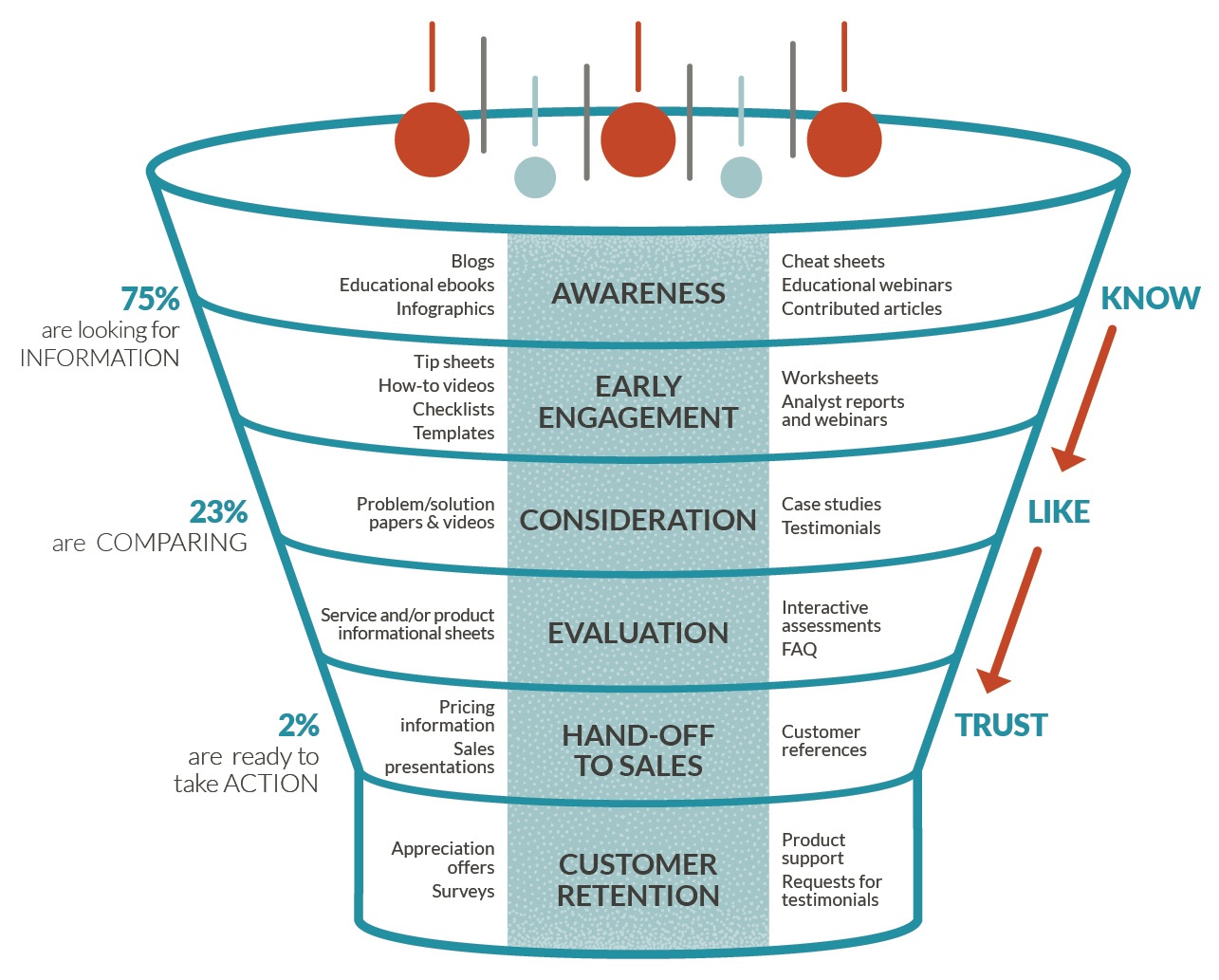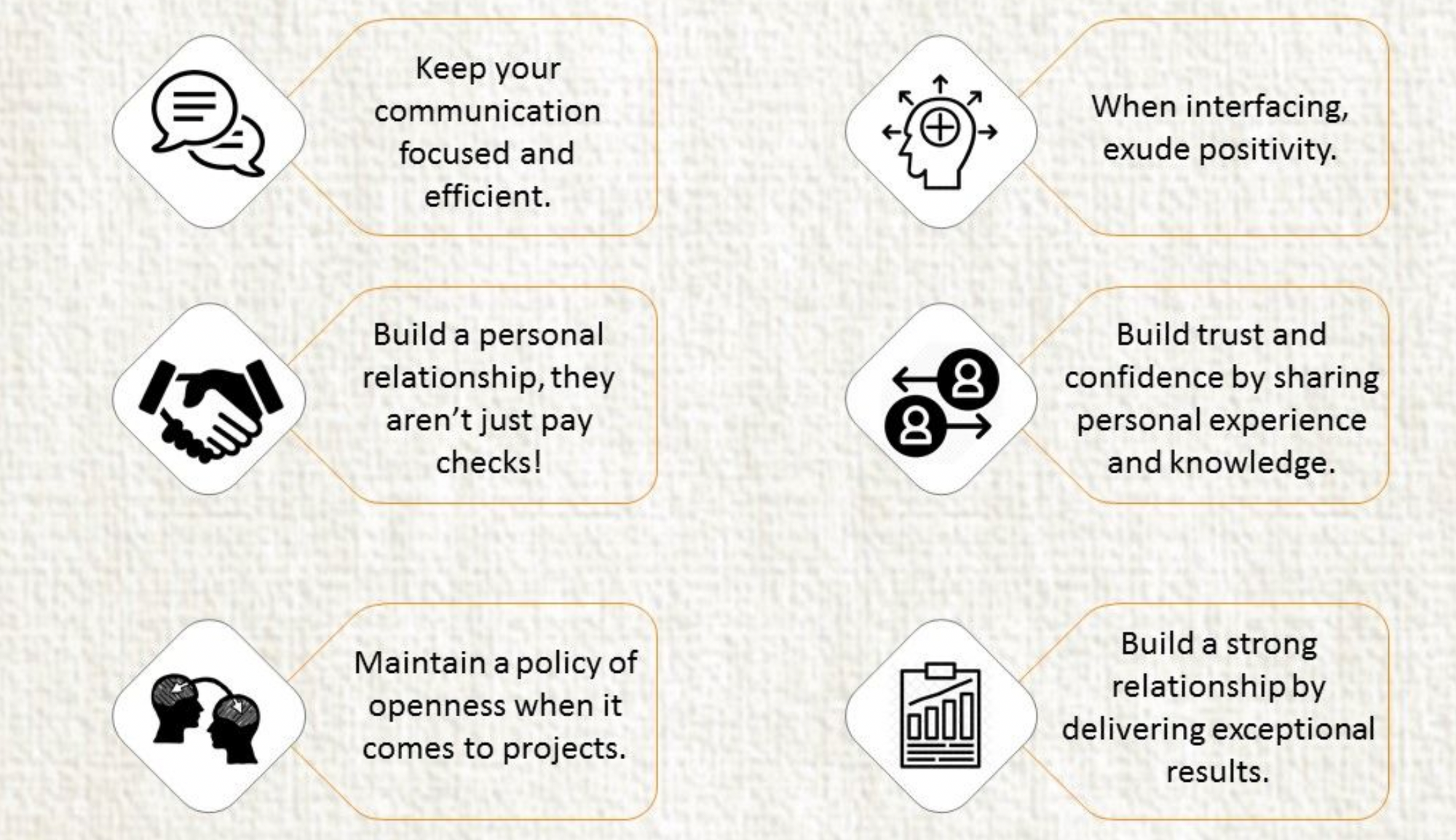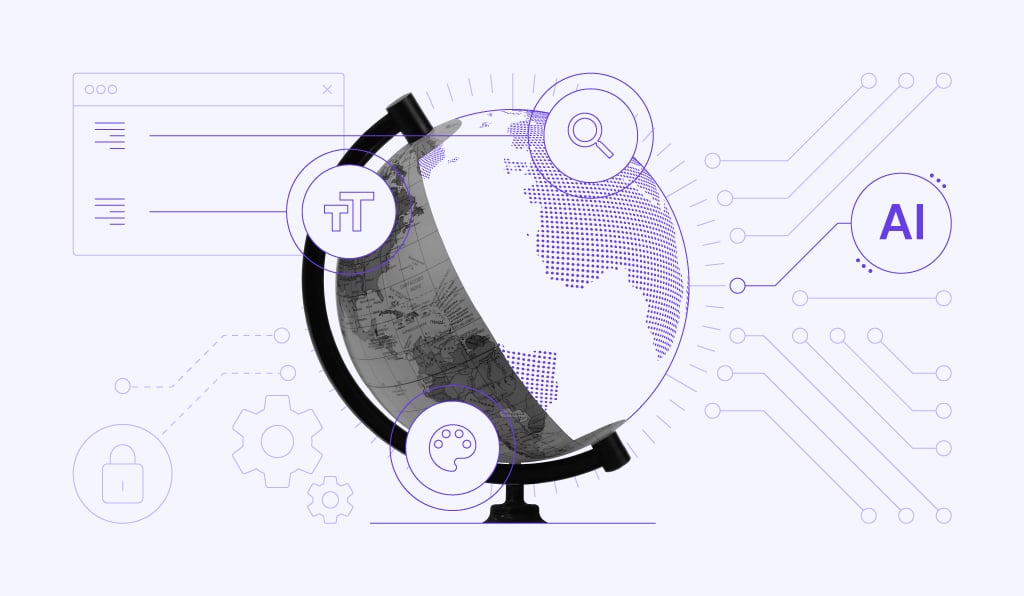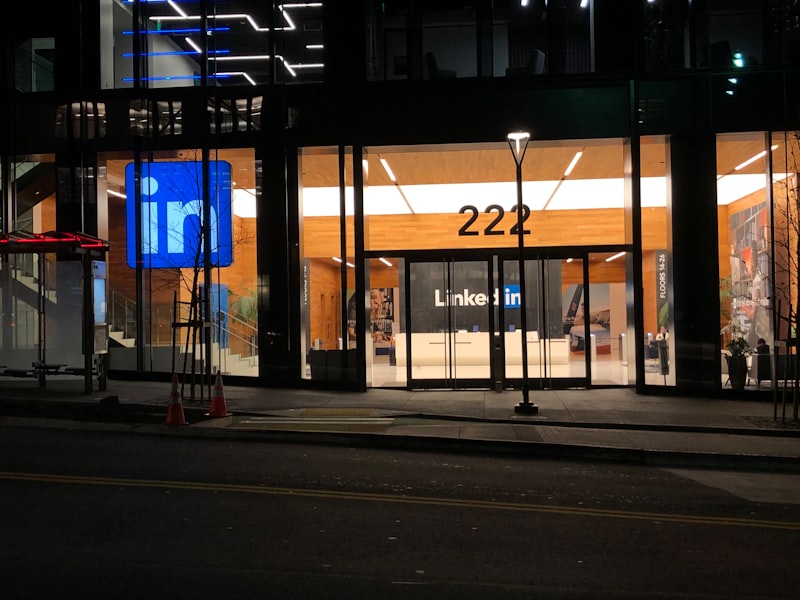Growth. It's the oxygen that keeps companies alive and thriving in the cutthroat world of business. But achieving sustainable, long-term growth is easier said than done - especially when venturing into new markets or product categories.
In my years of leading a B2B marketing agency, I’ve seen many ambitious organizations try building marketing capabilities in-house to drive growth, only to eventually hit roadblocks. Often, they lacked the bandwidth, expertise or integrated strategies to move the needle.
That's why I'm such a firm believer in the power of partnering with the right B2B marketing agency - it can be the growth catalyst to take your business expansion goals from pipe dream to high-speed reality.
In this post, I'll share the proven ways we help clear a path for sustainable growth for our clients. From lead gen to sales enablement and everything in between, we become an extension of your team and get fully invested in your business growth as if it were our own.
Let's explore some of the key connections we help foster to accelerate business expansion in a competitive market...

Strategies for Lead Generation and Nurturing
The starting point for agency-driven expansion is identifying and capturing high-intent leads primed for conversion. B2B agencies deploy innovative tactics to attract quality prospects, coupled with best practices for nurturing them into sales opportunities.
Innovative Tactics for Attracting Quality Leads
Gone are the days of relying solely on generic trade show booths, cold calls, and plain website requests to generate leads. B2B agencies combine data-driven targeting with captivating content across multiple channels to engage prospects likely to convert.
| Tactic | Description |
|---|---|
| Targeted Ads | Paid search/social campaigns focused on roles, intents, behaviors pinpointing qualified prospects |
| Industry/Persona Content | Centralized content strategy aligning assets to business outcomes for each target persona |
| Account-Based Everything | Coordinated outreach across multiple stakeholders within high-value accounts |
| Referral Campaigns | Turn customers into advocates incentivized to share content and make referrals |
| Lead Magnets | Valuable collateral like eBooks/webinars exchanged for lead contact info |
These innovative lead generation vehicles directed by B2B agencies are a far cry from the generic, interruption-based tactics of the past. They allow for businesses to achieve more precision, relevance, and transparency with their prospect outreach through content people actually want to consume.

Best Practices for Lead Nurturing and Conversion
But attracting leads is only step one. B2B agencies specialize in deploying automated, personalized nudges across email, social, ads, and sales channels to turn interest into action.
Whether prompting for the next piece of collateral, scheduling a demo, or redirecting to pricing, sequenced multi-channel nurturing helps progresses leads through the buyer’s journey. This orchestrated process of value delivery earns trust while positioning the business as an industry thought leader.
Agencies also arm sales teams with the intelligence needed to convert leads more efficiently. By scoring inbound requests and appending behavioral/firmographic data, reps know which leads deserve immediate follow up and specific needs to address. This empowers them to tailor messaging and provide better customer experiences.
Lead Scoring Criteria to Prioritize Sales Follow-Up
| Criteria | Weight | Points |
|---|---|---|
| Visited Pricing/Demo Page | High | 50 |
| Downloaded Competitive Analysis Report | High | 40 |
| Watched Product explainer video >50% | Medium | 30 |
| Opened lead-nurture email 2+ times | Low | 20 |
| Current customer at company | High | 60 |
| First Time Visitor | Low | 10 |
According to Forrester, businesses employing lead nurturing generate 50% more sales ready leads at 33% lower cost over traditional methods. B2B agencies have institutionalized such programs into their client growth blueprints.
Building and Sustaining Client Relationships
Beyond attracting and converting new leads, B2B agencies recognize helping businesses cultivate enduring client relationships as central to expansion.

Importance of Long-term Client Engagement
The most successful B2B companies earn client loyalty through long-term engagement spanning years. Developing an intimate understanding of client needs, processes, and objectives allows for better solutions and value delivery over time.
B2B agencies facilitate this through continuous touch points providing personalized, relevant communications to each client. This spans customized content recommendations, invitations to firm-hosted events, and surveys capturing evolving requirements.
Proactive outreach also provides regular opportunities for informal relationship building, pulse checks, and upsell/cross-sell discussions. Such nurturing keeps the agency top of mind while uncovering expansion possibilities.
This lifecycle methodology generates compounding returns over the course of every client relationship, fueling substantial business growth.

Success Stories of Relationship Building
Capturing new leads drives incremental growth, but expanding existing accounts is often easier and more profitable. B2B agencies recognize this, devising integrated campaigns to maximize client lifetime value.
One manufactured building supplier increased share-of-wallet within current public sector buyers by 32% over 2 years working with a B2B agency. How? The firm instituted quarterly touchpoints providing usage data and refresh opportunities while also upleveling service and preferential pricing for top accounts.
An IT infrastructure solutions provider grew new logo acquisitions by 42% annually. Yet, they boosted account growth among active clients by 62% year-over-year by tapping their B2B agency partner. Tactics included automated renewals communication, bundling additional solutions into contracts, and loyalty incentives for client referrals.
The takeaway? Position the current client base as the most fertile area for expansion through relationship nurturing. B2B agencies make this a cornerstone of their continuous growth approach.
The Integration of Sales and Marketing Efforts

Too often, sales and marketing teams operate in silos, missing lead hand-off opportunities. B2B agencies bridge this gap through tight collaboration and shared intelligence between functions.
Collaborative Strategies for Sales and Marketing
Specialized B2B agencies maintain dedicated sales professionals to complement marketing. Working seamlessly, integrated teams employ tactics like:
- Joint weekly pipeline review calls to funnel leads appropriately
- Automated alerts when a hot inbound lead matches rep territory
- Custom imagery/messaging within collateral tailored to buyer stage
- Sales staff consultation on content themes to feed into outreach
- Rep originated content like case studies/testimonials fed back into lead nurturing
This interplay, guided by the B2B agency account team, breaks down functional walls. Sales and marketing evolve into reciprocal, interdependent growth drivers sharing data, insights, and content.
Many B2B agencies even embed staff on-site with clients full time. This intensifies collaboration, accelerating shared response to prospect interactions, event follow ups, and quarterly planning.

Keeping Pace with Industry Changes and Trends
As business landscapes evolve rapidly, B2B agencies dedicate resources towards identifying emerging opportunities and adjusting strategies accordingly.
Staying Relevant in a Rapidly Evolving Market
Specialist researchers and market analysts within B2B agencies closely track trends shaping client verticals. Monitoring developments across legislation, competitor offerings, disruptive tech, and buyer needs reveals where to adjust course.
Common practice areas seeing continuous shift include:
- Media Selection: Evaluating channel mix as consumption patterns change
- Mobile Optimization: Adapting experiences as mobile dominates engagement
- Buyer Journeys: Adjusting outreach rhythm as decisions accelerate
- Loyalty Drivers: Rethinking retention approaches as preferences fluctuate
- Emerging Segments: Refocusing audiences as new buying groups assert themselves
With an ear to the ground through industry connections, B2B agencies rapidly respond to signals warranting client strategy pivots. This anticipation keeps messaging, solutions and sales models aligned with trends as they emerge.
Ongoing investment in research, conferences, and partnerships ensures agencies evolve in lockstep with market forces affecting client growth. They transfer this vigilance in a competitive landscape to every business relationship.
The Path to Sustained Growth with a B2B Agency
For ambitious B2B organizations, expanding into new markets and acquiring customers is critical yet challenging. Specialized B2B marketing agencies make it their purpose to systematically stimulate and accelerate this growth through:
- Targeted lead generation and nurturing
- Building client loyalty over the long-term
- Tight collaboration between sales and marketing functions
- Keeping strategies aligned to fluid industry trends
Rather than improvising isolated marketing activities, B2B agencies take an orchestrated approach across objectives to fuel expansion. They act as growth engines injecting expertise, technology and reach while coordinating moving parts to convert interest into acquisition.
The payoff? Data-driven acquisition, higher conversion rates, larger deal sizes, and ultimately the sustained expansion B2B leaders seek. Partnering with a B2B agency can propel forward momentum during any business lifecycle stage.
So for B2B enterprises seeking to scale, integrating an agency into growth planning is non-negotiable. Tapping their specialized methodology, resources, and connectivity builds a foundation for elevating revenues continually over time through new relationships.
FAQ
1. What specific services do B2B marketing agencies provide?
B2B marketing agencies offer a wide range of specialized services to help B2B companies generate leads, build relationships, and drive sustainable growth. These include lead generation strategy, content creation and management, digital marketing across paid search, social, email nurturing, website optimization, branding and messaging, market research, sales enablement and more. B2B agencies build integrated solutions spanning multiple disciplines to accelerate business development.
2. How do B2B agencies help generate and qualify new leads?
B2B agencies leverage targeted paid ad campaigns, industry and persona-focused content, account-based outreach coordinating multiple touchpoints, customer advocacy incentives, and valuable lead magnets to attract and capture marketing qualified leads (MQLs). They further assess inbound leads on key qualifying criteria like role, intent signals, firmographic fit and engagement to filter and funnel premium prospects to sales teams. Multi-channel nurturing journeys educate and prompt leads to drive conversions.
3. What tactics do agencies use to expand existing customer accounts?
Specialized B2B agencies cultivate enduring client relationships spanning many years to maximize lifetime value. Through continuous touchpoints providing personalized, relevant communications, they nurture each client post-sale. This outreach also reveals expansion opportunities via upsells, cross-sells, or client introductions. Tactics include quarterly business reviews, automated promotions, preferential pricing for key accounts, bundled solution recommendations, and loyalty incentives for referrals.
4. How do B2B agencies integrate sales and marketing operations?
Bridging siloes between sales and marketing teams enables seamless lead hand-off and strategy alignment. B2B agencies foster tight collaboration through weekly pipeline review calls, automated alerts routing hot leads to reps, custom collateral tailored to each buying stage, sales team consultation on content themes, and rep-created assets like case studies fed into campaigns. On-site embedded staff further intensifies coordination and response times.
5. Why are B2B agencies better positioned to drive growth than internal marketing teams?
Most internal B2B marketing teams lack specialized experience across the array of digital strategies and tools required to systematically attract and convert buyers in today’s complex environment. B2B agencies dedicate full departments and top talent towards innovating new lead generation vehicles, optimizing for priority personas, integrating sales enablement, and applying automation to scale one-to-many outreach. These proven methodologies amplified by an agency’s reach yield significant growth for clients.
6. How do B2B agencies stay ahead of emerging marketing trends?
Dedicated research functions within B2B agencies closely monitor macro trends, disruptive technologies, competitor offerings, industry news, legislation shifts and buyer preference changes. This vigilance reveals where strategies may warrant realignment regarding media channel mix, mobile experiences, sales cycle compression, loyalty drivers and target segments. Through continual environmental scanning and trusted partnerships, agencies rapidly respond to signals of change with informed pivots.
7. What is the average ROI generated through partnering with a B2B marketing agency?
According to the Association of National Advertisers, the average 3-year ROI delivered by effective B2B marketing agency engagements ranges from 308% to as high as 564%. Metrics seeing notable lift include lead volume and quality, sales cycle velocity, win rates, contract values and lengths, client retention, and referral rates. The expansion impact compounds annually across new customer acquisition and current account growth.
8. How much does it typically cost to work with a B2B marketing agency?
Entry-level retainer engagements at specialized B2B agencies often start between $3,000-$7,000 per month. Mid-tier programs spanning additional disciplines like paid media management and sales enablement usually range from $9,000-$15,000 monthly. Custom expansive partnerships with top-tier B2B agencies average $20,000 and beyond, aligned to growth goals. Expected ROI on agency spend often reaches or exceeds 10x return.
9. What questions should you ask prospective B2B agencies?
Smart qualifying questions for potential B2B marketing agencies include: What experience do you have in my niche? How do you track and report on performance? What does your ideal client relationship look like? Can I speak to some of your clients? How do you stay on top of trends affecting my industry? What results have you achieved related to my firm's goals? Do you focus on short-term wins or long-term growth? Such dialogue provides insight into fit.
10. When is the right time to engage a B2B marketing agency?
The optimal time to integrate a B2B marketing agency is whenever a business seeks to accelerate expansion, lacks internal bandwidth to implement proven tactics, feels overwhelmed navigating the dynamic digital landscape, or determines their current approach insufficient to stimulate growth ambitions. Enlisting help to enrich reach, leverage technology, and execute systematically unlocks new acquisition channels otherwise unattainable.






